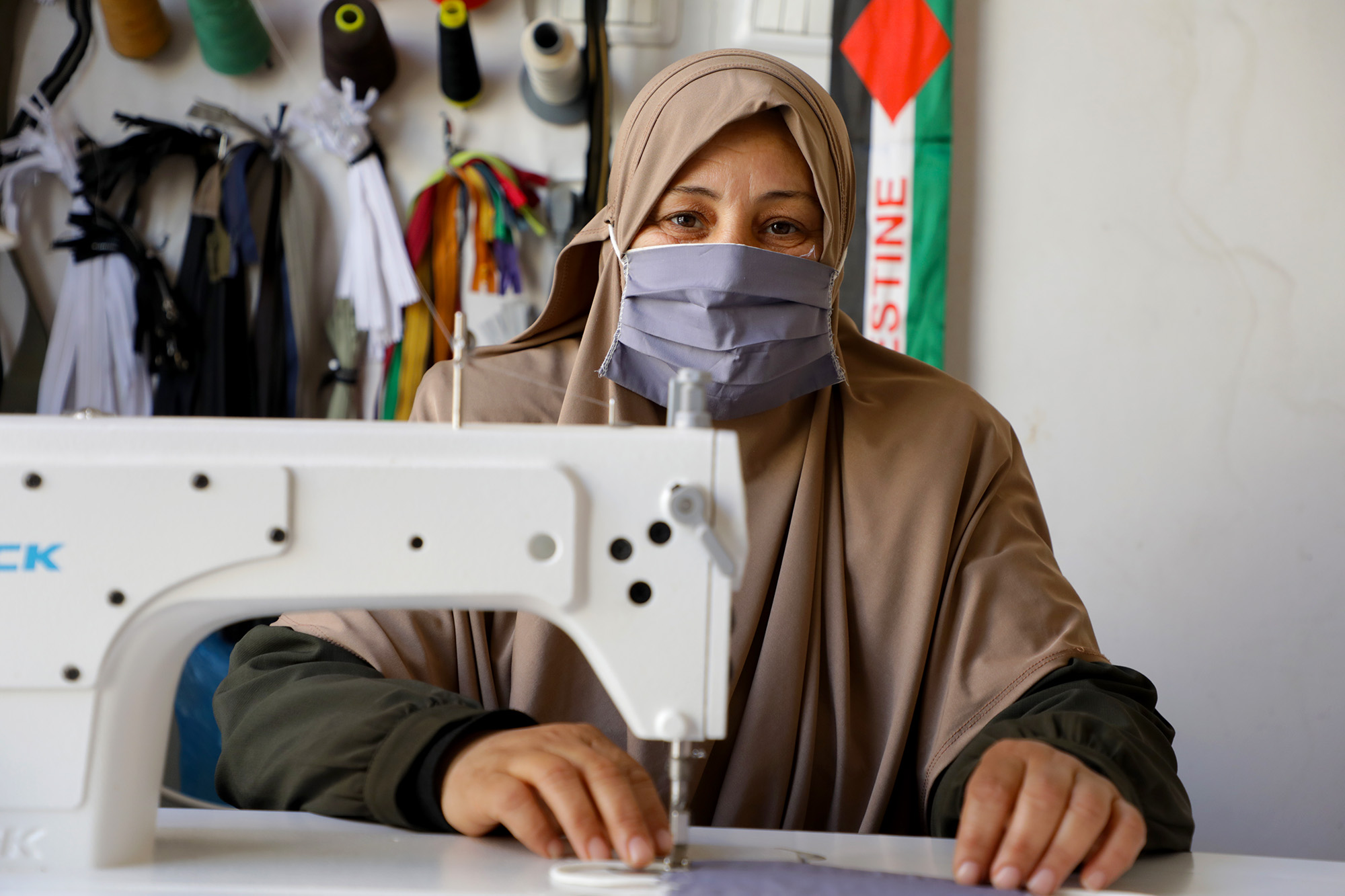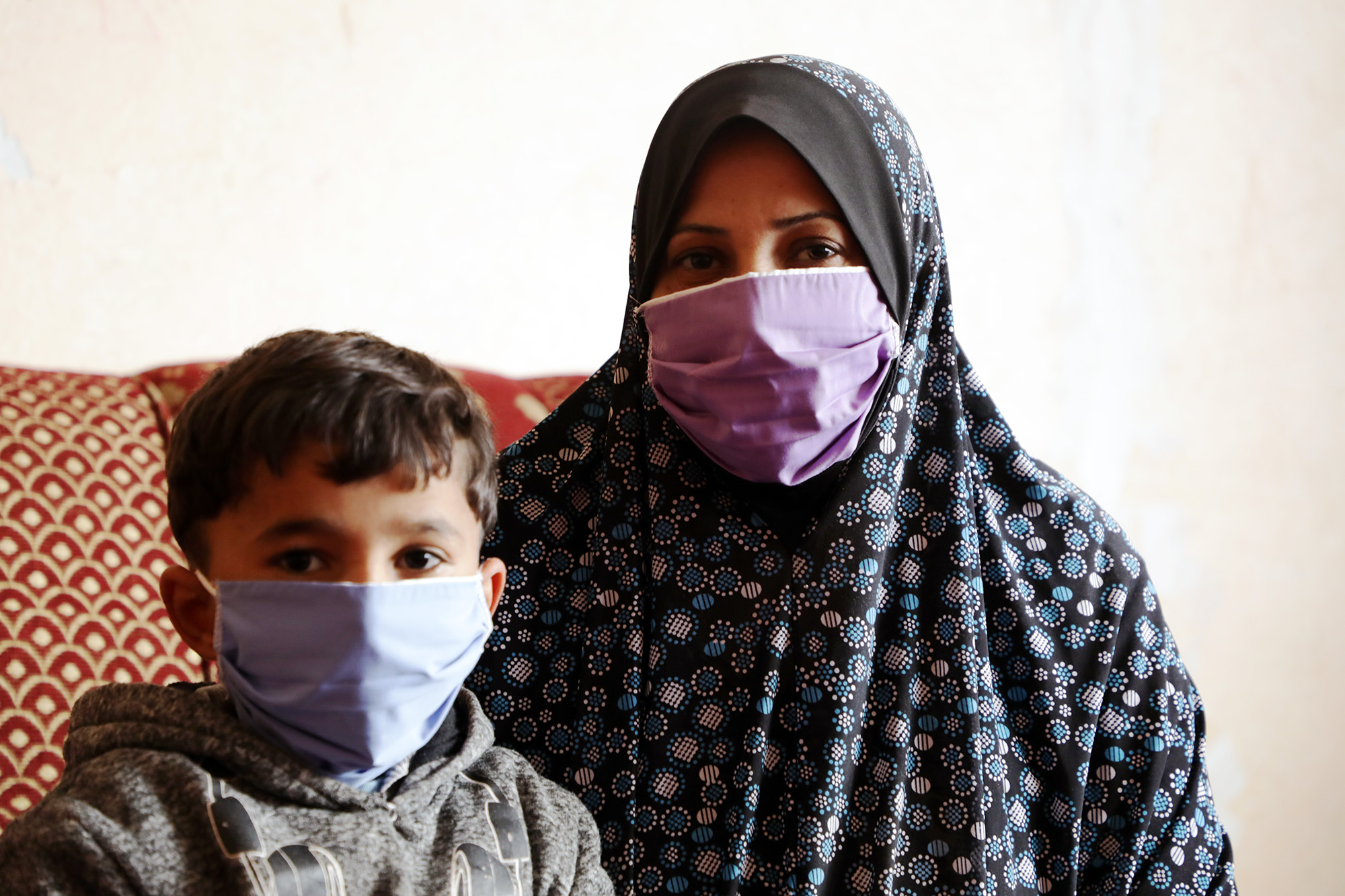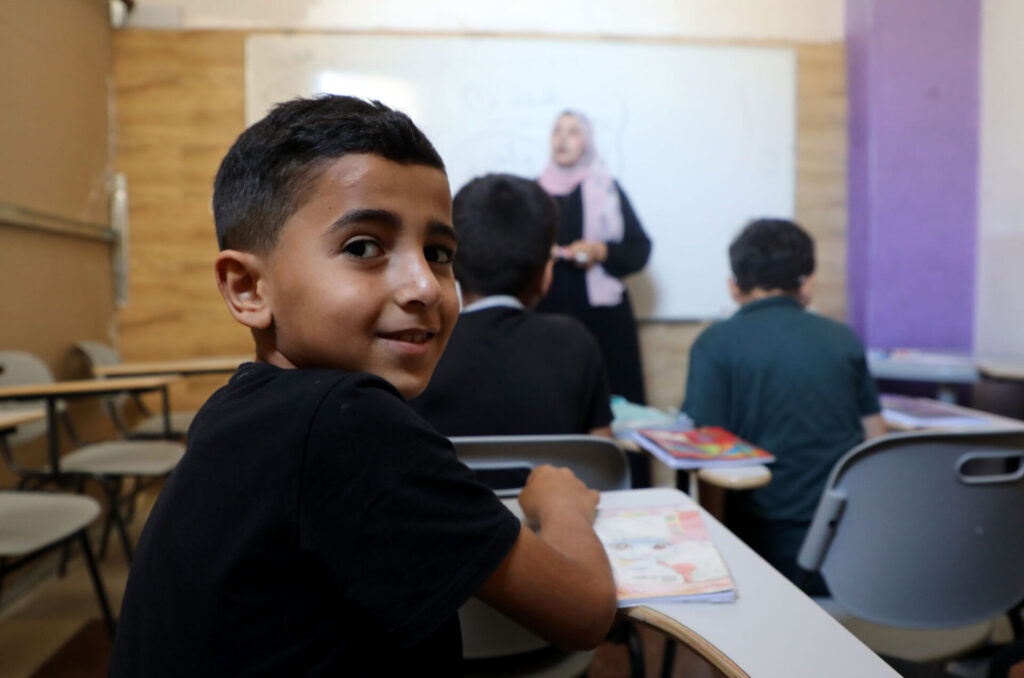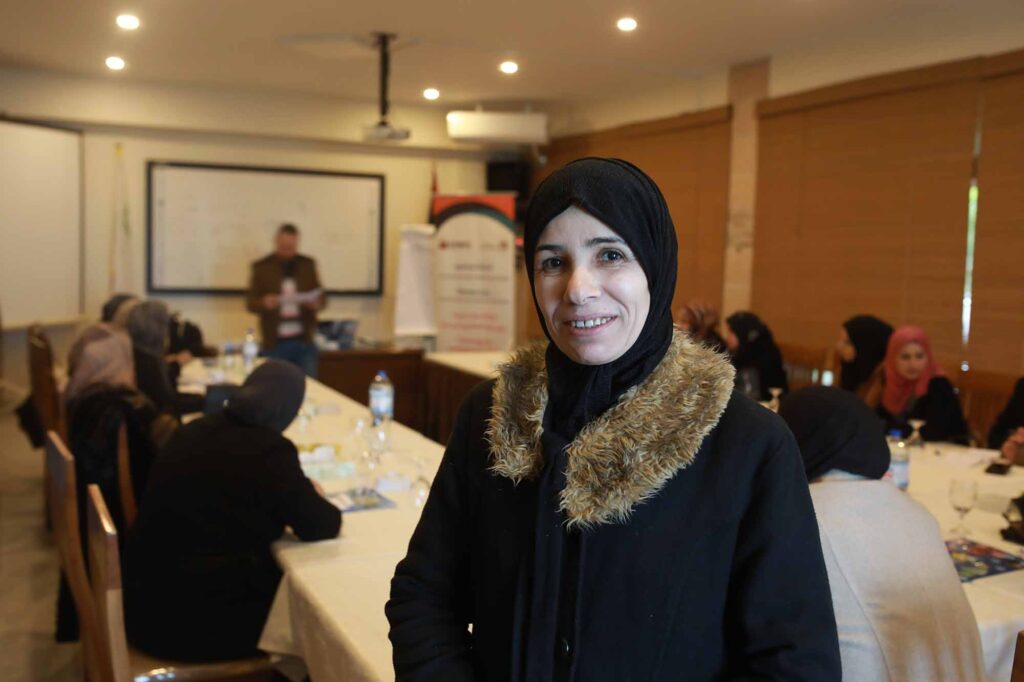Mar, 2021
Beit Hanoun PPE production offers employment while helping to protect the local community from COVID-19
It’s a warm day in Beit Hanoun, Gaza where Houriya lives with her family. The sun is out after two days of rain and the air is fragrant with rich, earthy smells of the soil. Houriya takes it in and prepares to start her day.
Houriya works at home, where she sews masks and other garments for her local community. Behind her are 20 colorful spools of thread. Beside her is her 5-year-old son. Like many parents in the last year, she must juggle work and child care.
Houriya received her sewing machine and professional-level sewing training last year through a joint program between Anera and our local partner, Cooperative Society for Saving and Lending, to help women heads of household to launch their own small sewing businesses


This project helped me overcome my stressful economic situation."
A Significant Public Health Intervention
Building upon the capacity created by this project, the McMillan Stewart Foundation generously provided a grant to fund a three month emergency project that ran from October through December. The large-scale mask production effort resulted in a remarkable 90,000 reusable cloth masks being made over the course of the three months for families in northern Gaza, helping to slow the spread of COVID-19 in some of the most vulnerable communities. To do the work, the initiative contracted eight women in Beit Hanoun who had already received training and sewing equipment, offering a source of significant income for the women, who are the primary breadwinners in their families.
The women produced 150 masks a day each — a total of 1,200 face masks every day — over the three months (75 working days) of the project. The masks were made to the specifications and standards of the Ministry of Health and distributed to 12,869 vulnerable families across Gaza through CSSL’s large network of members and volunteers in each governorate.
Since the beginning of the COVID-19 pandemic, many vulnerable families in Gaza, particularly in rural villages, have not been able to obtain basic PPE like masks. By hiring these women, this initiative provided face masks to marginalized families who otherwise would not have access to this item that has become so essential for safety.
Houriya says,
“This project helped me overcome my stressful economic situation. I filled my empty gas canister for the stove and bought winter clothing for my children.”
She can sew as many as 300 masks per day if needed. Fortunately, her sewing work also allows Houriya flexibility to manage her schedule around her other commitments.
“I have improved my skills. It’s hard for a woman to sustain a job in this village. Now I can sew and sell to the community. I feel that my life has a value.
“I hope someday I’ll be in a position to expand my business. Before joining this project, I used to recycle clothes from old outfits, like hemming pants or stitching school uniforms.
“Now, I’ve opened a shop and people are starting to hear about me. My income has increased, which is great. Nothing compares to the feeling of being able to provide for your family.”
Wafaa is a mother of four who lives in Beit Hanoun, where she was born and raised. Hers is among the families who received masks. She says,
“Since the start of COVID-19, it was hard to find masks — and anyway, they were too expensive. It’s a big relief knowing that they are now available. When [the Cooperative Society for Saving and Lending] delivered the masks to us, they told us how important it is to wear them for protection.”
Wafaa says the project has improved the whole community.
“I think wearing a mask started as a weird practice. But then it became a habit, so now it’s become just part of the culture. Everyone in my family now wears masks for protection. I make sure that my son wears his mask when he’s at his preschool. What else can I do as a mother?”




